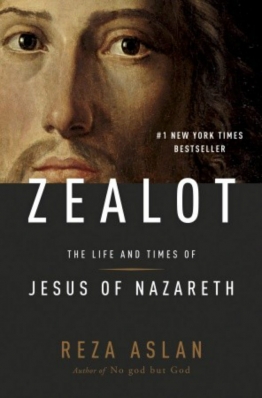In John’s Gospel, Jesus says to his disciples, “I will do whatever you ask in my name, so that the Father may be glorified in the Son. If in my name you ask me for anything, I will do it” (John 14:13-14). I’m sure most reading this recognize that this is not some universal blanket promise. So we have to ask, “On what level is this true?” Or, “Is it true on any level?”
Jesus says, “Let not your hearts be troubled.” He is not telling them to not be sad, but rather, to not be frustrated and fearful. Jesus himself struggled with this according to John’s account. Three times John says Jesus was troubled: at the death of Lazarus, when he contemplated his own death, and when he realized that his own disciples would betray and desert him in his final hour.
This is a kind of reverse reversal story. Much of Luke’s Gospel is about Jesus’ journey to Jerusalem, but these two disciples, possibly
Jesus wants his disciples to know that their betrayal, their breach of covenant loyalty, did not dissolve the covenant, did not result in their rejection. They are loved and accepted. This is where we all have to start or, perhaps, come back to – that we are accepted in spite of all our failures and betrayals, that we are accepted even though we do not deserve to be accepted. But to claim acceptance for ourselves means that we have to claim acceptance for everyone else. God’s gift of peace is not just for our group, it’s for the cosmos, and we who have heard that word and accepted it, are called by God to spread that word
The power of life that raised Jesus is accessible and available to all people, even those who have not heard of Jesus. The risen Christ, the cosmic Christ who is Lord of all can take many forms and answer to many names. Our text says that God shows no partiality, that anyone who fears God, and that does not mean to be afraid of God, but anyone who respects and honors God, and anyone who does what is right, anyone who does what is just and good and compassionate shares in the life of the risen Christ.
The image of a scapegoat recalls a ritual performed by ancient Israel on their holiest day of the year—Yom Kippur or the Day of Atonement. A goat was chosen by means of casting lots. Actually there were two goats chosen, one was killed as a sin offering to make atonement for the holy place, the other was allowed to live to make atonement for the sins of the people.
Jesus was executed by the Romans and died a tragic death. But then afterward, we hear the voice of God’s messenger telling the women who had come to the tomb to anoint Jesus’ dead body with spices: “He is not here, He has been raised.” God validated and vindicated Jesus’ life, message, and ministry by raising him from the dead. God had not abandoned Jesus. God was with Jesus through the whole ordeal. And when we get to the end of Matthew’s Gospel the cosmic Christ tells the disciples, “I will be with you through everything, even until the end of the age.” The Really Real, the risen Christ, the cosmic Christ, the Holy Spirit (use whatever name you prefer) is with us through all of life, in times of joy and hope, and in times of pain and disappointment.
We all belong. We are each one a part of the Temple of God. Paul wants the church at Corinth to recognize that they all belong to one another, and that it is foolish to divide and polarize around certain leaders. Paul argues that there is no place in the church for petty jealousies and pride.
Sermon by Chuck Queen, Feb. 9, 2014
In contemporary speech the word spiritual is more associated with personal or private experience, while the word religious is usually connected to communal, institutional, and organizational religious life. Those who identify themselves as spiritual but not religious reject traditional organized religion as the sole or the most valuable means of advancing one’s spiritual growth.
When Paul talks about the wisdom of the world he is not talking about Greek philosophical wisdom. The wisdom of the world that Paul has particularly in mind is the wisdom that crucified Jesus. The wisdom of the world Paul is referring to is the kind of wisdom expressed in domination systems. In our context it would be powerful governments and corporations who wield enormous power and wealth to shape society in view of their own self-interests.
When it comes to faith sharing there are two poles. At one end of the spectrum is the witness who is absolutely sure of himself. He is anchored in certitudes and has the truth nailed down. You want answers, he has them. He is bold and brass, if not arrogant and obtrusive. Most people who would read this article are embarrassed by this kind of Christian witness. At the other end is the Christian who is very hesitant to saying anything at all about her faith. “It is the life I live that matters,” she says, which, of course, is true, but shouldn’t disciples of Jesus want to say something about Jesus, in whom and through whom they have found a transformative path?
Paper presented at Georgetown College for the conference: Re-Imagining Faith for America and the World
It’s important to understand that the change I believe must occur is not related to style, but substance. I’m sure most of you remember the abundance of church growth literature accessible at the height of that movement. Almost all of it related to style and methodology, which is not to say that such issues are not important, but my greater concerns relate to substance and message. So, what needs to happen?
The one thing that almost all theologians, biblical scholars, and historians agree on when it comes to Jesus is that the kingdom of God was foundational to his mission and ministry. It is front and center, it is at the heart and core of his life and work.
Truth exists, but our experience of it is limited and fallible. Christians would do well to humbly acknowledge that our sacred texts are also limited and fallible. Jesus did.
In our last conversation talk turned toward the state of the world. Such a state signals for conservative Christians that Jesus will soon return. She was reflecting, “I’m glad I am not going to be here. I am glad I will be caught up to heaven.” She asked me initially, “Do you believe Jesus is going to come back soon?” Then, she remembered who she was talking to and rephrased the question rather tentatively, “Do you believe Jesus is going to come back?” She did not appear too optimistic about my response.
Book Review of Zealot: The Life and Times of Jesus of Nazareth
Reza Aslan’s basic thesis in Zealot: The Life and Times of Jesus of Nazareth is that Jesus was a failed revolutionary who was willing to use violence to overthrow the political and religious order to bring in God’s kingdom.
A phrase in the contemporary Christian song, "In Christ Alone," has sparked a great deal of discussion lately. The phrase in question reads,
One of the frequent misused teachings of Jesus involves his instruction to ask, seek, and knock (Luke 11:9–13). There are Christians who treat this as something magical like a genie in a bottle or mechanistic like putting money in a vending machine. They think that if they say the right words, or use the right formula, or if they believe with all their hearts then the answer will be granted.
More progressive expressions of Christianity emphasize more inclusive versions of the kingdom of God. In Colossians 3, after admonishing his readers to clothe themselves with compassion, kindness, humility, meekness, patience, forbearance, and forgiveness, the writer says: “Above all, clothe yourselves with love, which binds everything together in perfect harmony” (3:14).
I recently scanned Osteen's book, "Your Best Life Now," in search of any serious reflection or teaching on the life, teaching and death of Jesus and Jesus' call to discipleship presented in the Gospels.
Faith is not about getting our doctrines right. Nobody gets the doctrines right. It’s about doing the right things.
If we could grasp Berry's vision, then our biblical images of judgment would not be terrifying, tormenting images to be feared, but purifying images to be welcomed, invested with new meaning.
God is not a spectator in our suffering, but rather, an active participant in the ebb and flow of both the good and bad in our lives. Our experience, rapturously joyful or horrendously painful, or anywhere in between, becomes part of God’s experience.
The God who has come to us in Christ, “only loves, and loves—and loves.” God is continually at work in non-coercive, creative ways, revealing to us the width and depth of unconditional divine love.
























